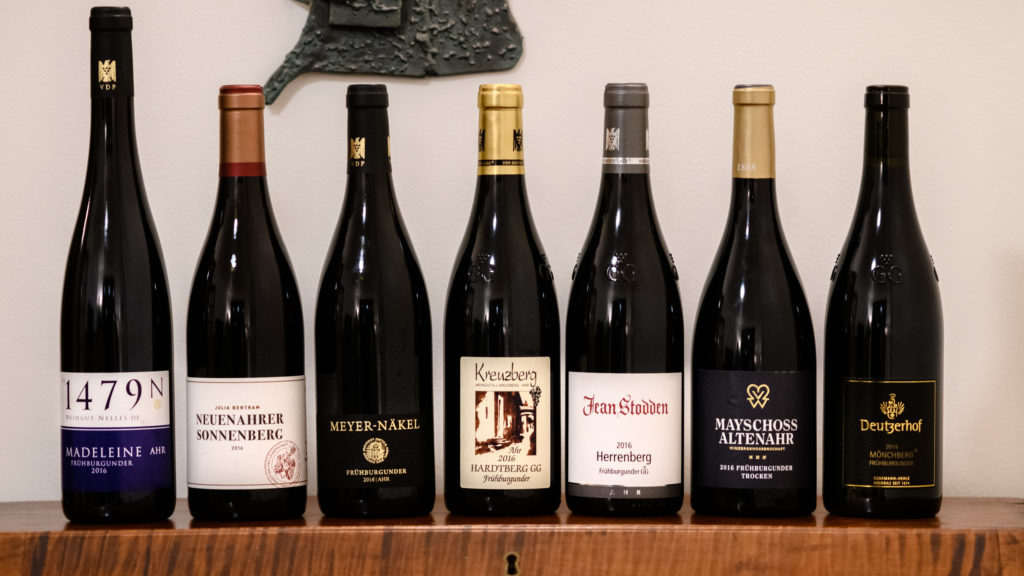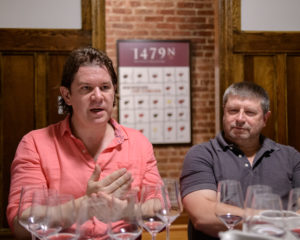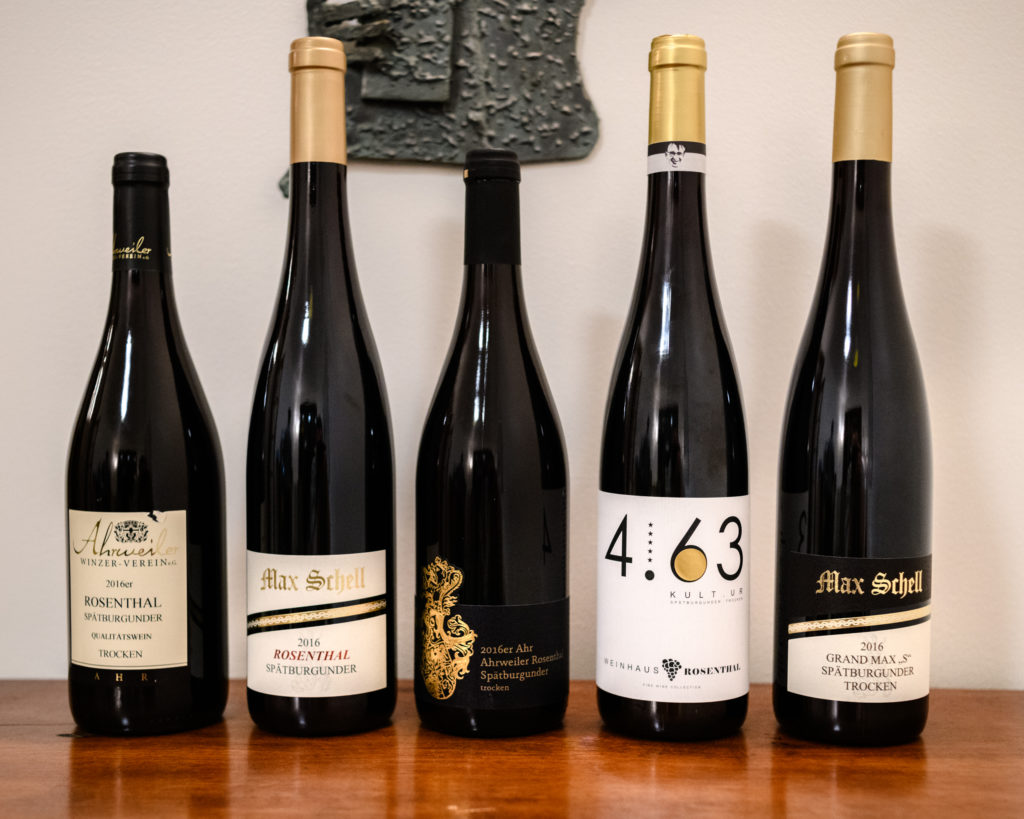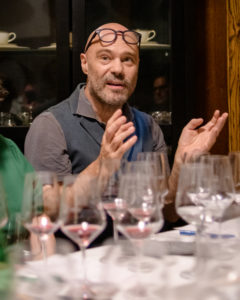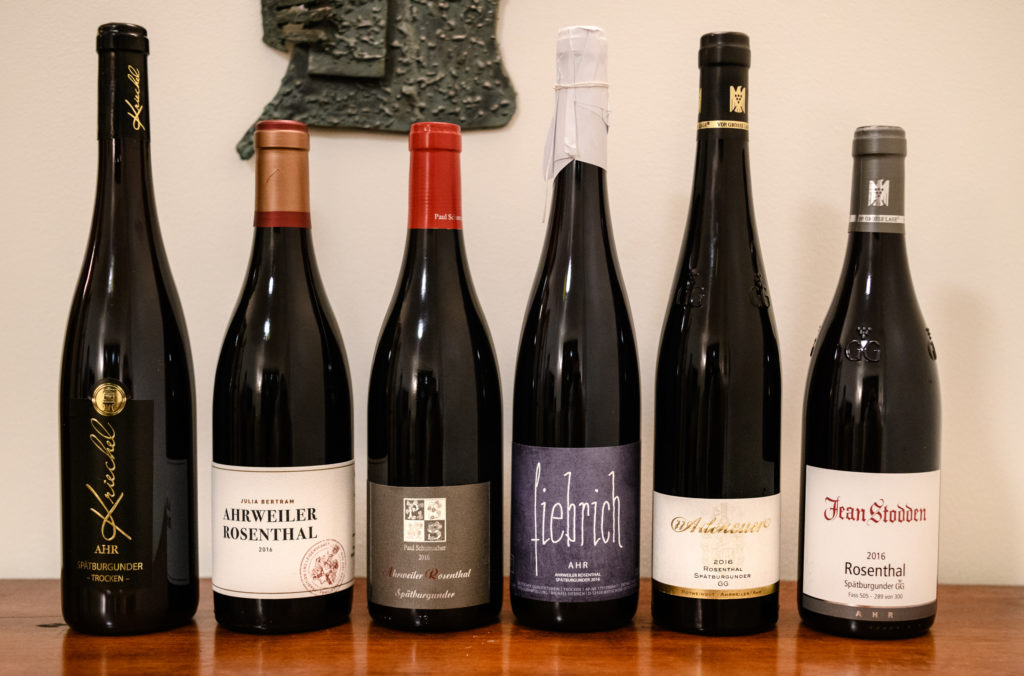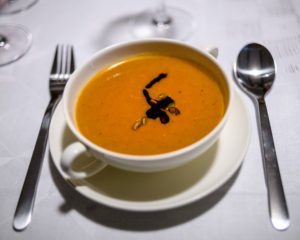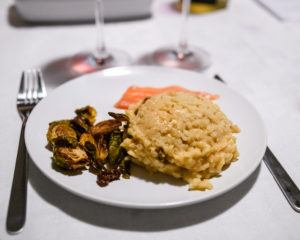[Updated 9:36 GMT 5 August 2021]
As many of you know, during the night of Wednesday, 14 July 2021, the Ahr Valley received nearly double the rainfall that it normally receives for the entire month of July. The water level rose of the Ahr, a river that is normally not more than 10 feet wide in most places, to nearly 7 meters above normal. The consequences were catastrophic, with more than 100 deaths (and counting, many are still missing). The rail line through the valley, the Ahrtalbahn, has been nearly completely destroyed, with 7 bridges partially or completely gone. Roads have been washed away as well, making some towns on the Ahr unreachable except by helicopter. I think it’s safe to say that the extent of the damage to homes and livelihoods in the valley from the flooding is worse than that from World War II.

Most vintners on the Ahr now face an existential crisis. Cellars and equipment have been destroyed or floated away, bottle stores have been lost. Most vintners lost all of the 2020 vintage and much of 2019. See the excellent article by Valerie Kathawala in Trink Magazine for more information.
How can we help?
A variety of places to donate have been established and individual vintners have also set up donation funds or the ability to purchase food-affected wine. Most are accessible primarily to those who can send funds to European bank accounts (i.e. with IBAN), but others use PayPal or GoFundMe. Regardless, the need for financial support for vintners on the Ahr is enormous. This page, which will be continually updated, lists the places you can give to support the production of wine on the Ahr at its most difficult time ever.
Update: I now indicate where direct donations [donation] are sought and where wine can be purchased [wine purchase] to support the Ahr vintners.
As a note: those without European bank accounts can easily use wise.com to convert other currencies and transfer funds to a European account. If you would like help transferring funds to any places listed below, please feel free to email me: david@rotweinjaeger.com.
All information here is provided as a service, but I assume no responsibility for incorrect information or for how any donations to the listed places will be used.
Donations and wine purchases that benefit more than one vintner
VDP: “Der Adler Hilft” [donation]
The VDP has established a fund that will be distributed to all vintners on the Ahr. The account information:
Account: Der VDP.Adler hilft e.V.
Bank: Rheingauer Volksbank
IBAN: DE 21 5109 1500 0000 2045 28
BIC: GENODE51RGG
Subject: Solidarity Ahr Viticulture
The subject line is important here so that the funds are routed to the appropriate purpose.
Update: The VDP has also only recently set up a PayPal account: deradlerhilft@paypal.de. This should make it easier for those who don’t have a European bank account to help.
I have also set up a GoFundMe account to take donations from those who are not able to send to a European bank account. All donations on or before 27 July will be sent to the VDP account above. Donations after 27 July will be sent to the “Ahr-A Wine Region needs Help e.V.” described below. Please contact me if you’d like more information.
Update: I have close the GoFundMe to further contributions, as direct PayPal contributions to the VDP is preferable.
AHR – A wine region needs Help Rebuilding e.V. [donation]
An initiative of Marc Adeneuer (of Weingut JJ Adeneuer), who is currently the leader of the VDP Ahr, and Martita Weil (VDP), funds donated here will be distributed to all vintners on the Ahr (not just the 7 VDP vintners).
Marc is one of the absolute best people in the world and I count him as a friend.
Account: Ahr – A Wineregion Needs Help e.V.
Bank: Kreissparkasse Ahrweiler
IBAN: DE94 5775 1310 0000 3395 07
BIC: MALADE51AHR
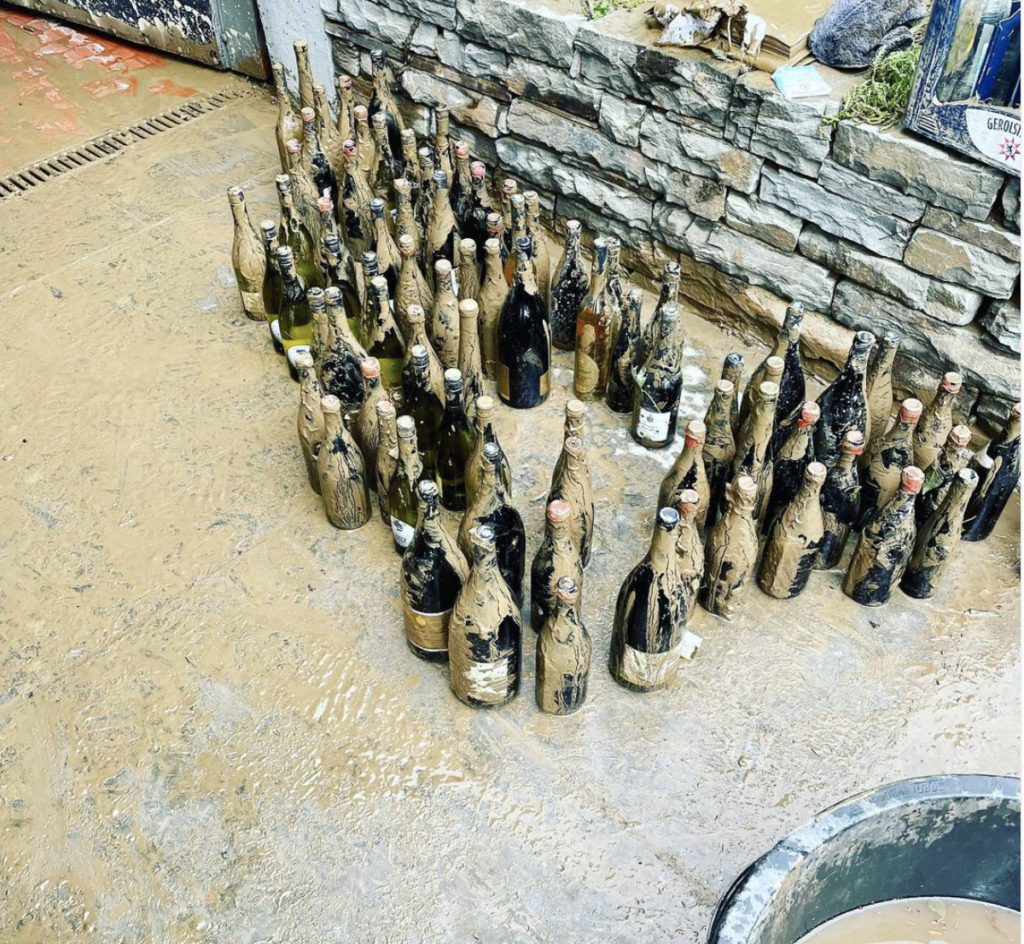
German Wine Institute [donation]
The German Wine Institute has established a fund to help vintners on the Ahr. All proceeds donated will benefit the vintners. For international transfers, please see the link.
Account: Deutsches Weininstitut GmbH
Bank: Mainzer Volksbank
IBAN: DE14 5519 0000 0619 7860 15
BIC: MVBMDE55
Subject: Donation Ahr Flooding
Fair ‘n Green
The sustainable wine production group Fair ‘n Green has established a donation fund to help personal and business members of their network. Please donate to:
Account: Spendenkonto Fair and Green e.V.
Bank: GLS Bank, Bochum
IBAN: DE67 4306 0967 4076 8938 01
BIC: GENODEM1GLS
Subject: Hilfe für Flutopfer
Bauern- und Winzerverband Rheinland-Nassau e.V. [donation]
The Farmer and Vintner Association of Rheinland-Nassau has established a donation fund. All proceeds go to help farmers and vintners in the norther part of Rheinland-Pfalz, with minimal bureaucratic hurdles.
Account: Spendenkonto des Bäuerlichen Hilfsfonds
Bank: Volksbank RheinAhrEifel
IBAN: DE46 5776 1591 0124 0807 01
BIC: GENODED1BNA
Subject: Starkregenkatastrophe
Deutsche Raffeisenverband (DRV) and Deutsche Genossenschaften und Raiffeisenverband (DGRV) [donation]
The Deutsche Raffeisenverband and the Deutsche Genossenschaft-und-Raffeisenverband have established a donation fund to help Cooperatives affected by the flooding. Donations can be made to
Account: Raiffeisen-Stiftung
Bank: Volksbank Köln-Bonn
IBAN: DE 96 3806 0186 2101 1110 19
BIC: GENODED1BRS
Subject: Unwetterkatastrophe – Genossenschaften helfen
Schulumberger/Segnitz [donation]
The wine distributor Sclumberger/Segnitz has established a donation fund. All proceeds will go to help vintners on the Ahr, particularly their partners Weingut Nelles (winery nearly fully destroyed) and Weingut Deutzerhof (with thankfully little damage). Donations can be made until 31 July 2021 to:
Account: Schlumberger & Segnitz Gruppe
IBAN: DE49 2802 0050 4600 3778 08
BIC: OLBODEH2XXX
Institut: Oldenburgische Landesbank AG
Subject: Nothilfe Ahr
“flutwein” [wine purchase]
“flutwein” is a project started by klebers kuche & garten, with all proceeds going to the Ahr – A Wineregion Needs Help e.V listed above. They are selling 3 flood-dirtied bottles for €60. In addition, there are 1000 bottles individually available with tags number from 1-1000 denoting the bottle as “flutwein”, with lower numbers requiring higher donations (ranging from €50 to €500. For more information see their site on StartNext.

4 Friends from Gesenheim [wine purchase]
Four friends who studied together at the Geisenheim Hochshule for Wine are offering a 6-pack (€ 75 including shipping) from 4 wineries in 3 different wine regions: Weingut Wind-Rabold (Pfalz), Weingut Freiberger oHG (Hessische Bergstrasse), Weingut Röhl (Rheinhessen), and Weingut Lauth & Sohn (Pfalz).
Send € 75 to
Account: “Hilfspaket für die Ahr”
Bank: VR Bank Südpfalz eG
IBAN: DE24 5486 2500 0605 5512 93
BIC: GENODE61SUW
Subject: <your name and address>
Be sure to include your name and address as the Subject (“Verwendungszweck”).
Rieslinghaus Bernkastel and Julian Haart [wine purchase]
Rieslinghaus Berkastle is auctioning off a 3L bottle of 2018 Ohligsberg Riesling Kabinett from Julian Haart. Bidding ends tomorrow, 27 July at 9 pm Germany time. All proceeds go to the Bauern- und Winzerverband Rheinland-Nassau e.V. help fund. Bids only over this Facebook page.
“#SOLIDA(H)RITÄT” [wine purchase]
Dirk Würtz of the VDP Weingut St Antony has coordinated a phenomenal effort of vintners across Germany, Austria, and the Südtirol, who have all donated bottles to be sold with all proceeds going directly to the VDP “Der Adler Hilft” fund. Six-packs of wines chosen at random from the donations cost €65. To date more then 10,000 cartons have been sold! This is truly an extraordinary response for which all of the vintners on the Ahr are grateful and from which they will benefit.
The offer is momentarily on hold while Dirk and his many helpers get the existing offers out the door. Orders will again by taken start 10 AM Germany time on Monday, 2 August 2021.
Donors willing to support the enormous shipping costs should contact Dirk Würtz directly.
SolidAHRitat 6-pack (€ 65 including shipping).
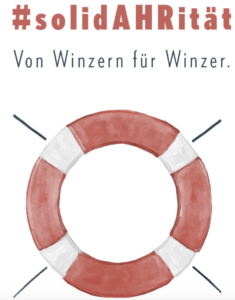
meiningers sommelier magazine “Somms helfen Ahr-Winzern” [wine purchase]
meiningers sommelier magazine has solicited donations of bottles from sommelier in Germany, Austria, and Switzerland and is selling them in packets of 1, 3, or 6 bottles — each packet size has a price of €200 (including shipping). All proceeds will be distributed to vintners on the Ahr. For more information and to order, please see “sommeliers-helfen“.
Moselwein Hilft [wine purchase]
A group of Mosel vintners is selling 6-packs of wine (€75 including shipping) from Schlossgut Liebieg, Weingut Karp-Schreiber, Weingut Harald Konrad Fehres, Weingut Generation Hoffmann, Dienhart Weine, Sektgut St. Laurentius, Weingut Rinke, Tiny Winery, Weingut Immich-Batterieberg , Weingut Alex Loersch, Weingut Andreas Roth, Weingut Heiden , Weingut Hain, Weingut Heinz Schneider, Auka, Weingut Kanzlerhof, Weingut Reiner Lautwein, Weingut Fritz Haag, Weingut Willi Haag, Weingut Schiffmann-Junk, Weingut Gustav Conrad, Weingut Hauth, Weingut Jungblut and Weingut Michael Lorscheider.
Simply send an email with your address (in Germany) to tinywinery2019@gmail.com to request a 6-pack. About 50 6-packs from a total of 250 are still available.
Von Winning Sauvignon Blanc 228 [wine purchase]
Weingut von Winning sells 300 bottles of Sauvignon Blanc specially chosen by Paula Bosch at €49 (plus shipping). Simply send an email to webshop@von-winning to order. All proceeds will go to the VDP “Adler Hilft” fund.
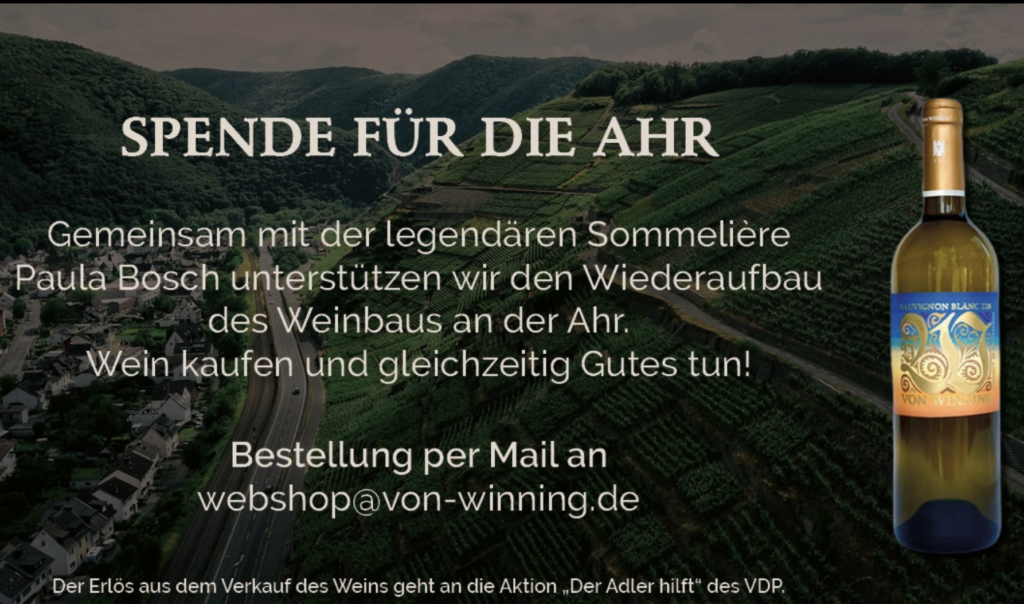
Weingut Tina Pfaffmann [wine purchase]
Weingut Tina Pfaffmann is offering 6-packs of her 2020 “Herzglück Riesling” for €65 including shipping. All proceeds are donated to victims of the flooding on the Ahr. Simple send an email to info@tina-pfaffmann.de to request a 6-pack.
Donations and wine purchases that benefit individual vintners
Weingut Erwin Riske (Dernau) [donation and wine purchase]
- Website: https://www.weingut-riske.de
- Instagram: @weingut_erwin_riske
- Facebook: @WeingutErwinRiske
Weingut Erwin Riske is a family winery now in its fourth generation. Like many vintners in Dernau, they were very badly hit by the flooding.
They are asking for direct donations to
Account: Weingut Erwin Riske
Bank: Kreissparkasse Ahrweiler
IBAN: DE51 5775 1310 0000 8907 56
BIC: MALADE51AHR
Subject: Spende Hochwasserkatastrophe
The subject here is important to denote the transfer as a donation.
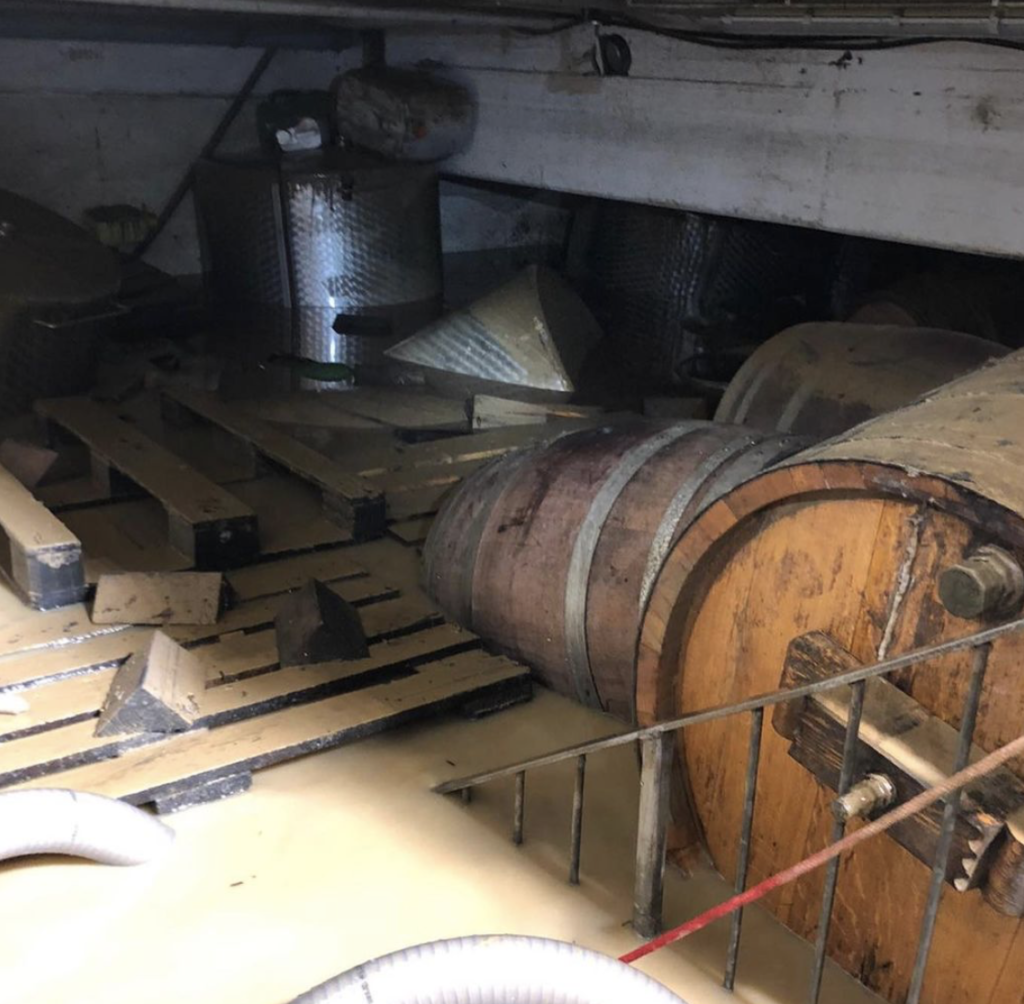
Weingut Erwin Riske is also selling bottles affected by the flood as “Hochwasser-Weine”, with a 1-2 month delivery time. This is also a great way to support them — buying these bottles now provides much-needed financial support.
See the full range of available “Hochwasser-Weine” here.
Rotweingut Jean Stodden (Rech) [wine purchase]
- Website: https://www.stodden.de
- Instagram: @jeanstodden
- Facebook: @rotweingut.stodden
Weingut Jean Stodden consistently produces refined and profound Spätburgunder of the highest quality. Alexander Stodden has brought his winery into the upper echelons of Germany’s wine elite.
Stodden is offering a 6-pack of at a minimum one VDP Grösses Gewächse, Alte Reben, or Lange Goldkapsel, plus 5 other wines from his outstanding collections for €250 (including shipping). All bottles have been saved from their cellar and washed. €10 per 6-pack will be donated to the rebuilding of the historical village center in Rech. Order only by emailing info@stodden.de. Delivery may take some weeks.
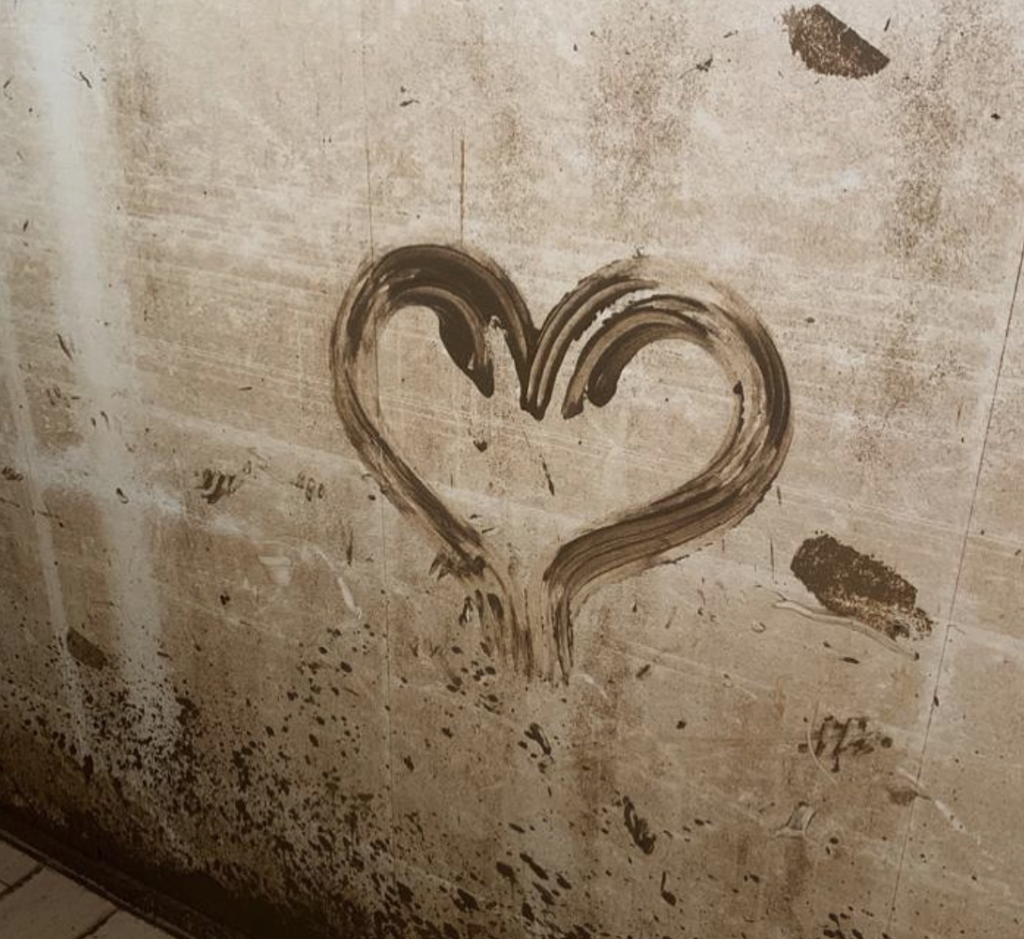
Weingut Klosterhof Gilles (Marienthal) [donation]
- Website: https://www.klosterhof-gilles.de
- Instagram: @weingut_klosterhof_gilles
Klosterhof Gilles is a small, family-run winery, “Winzerstube”, and pension in Dernau-Marienthal.
They have established PayPal pool for direct donations to rebuild their cellar, house, and pension. Contributions can also be made to
Account: Weingut Klosterhof GIlles
Bank: Norisbank
IBAN: DE49 7602 6000 0281 5421 11
BIC: NORSDE71

Weingut Kriechel (Walporzheim) [wine purchase]
- Website: https://www.weingut-kriechel.de/
- Instagram: @weingut_kriechel
- Facebook: @weingutkriechel
Weingut Kriechel is in its third generation as a family winery and with 24 hectares has grown to be the largest family-held winery on the Ahr. Their cellars and tasting room in Walporzheim were completely flooded.
Kriechel is offering a variety of Surprise-“Flutpakete” in their online shop:
- Dry white wine (€79 including shipping)
- Half dry white wine (€79 including shipping)
- Dry red wine (€79 including shipping)
- Half dry red wine (€79 including shipping)
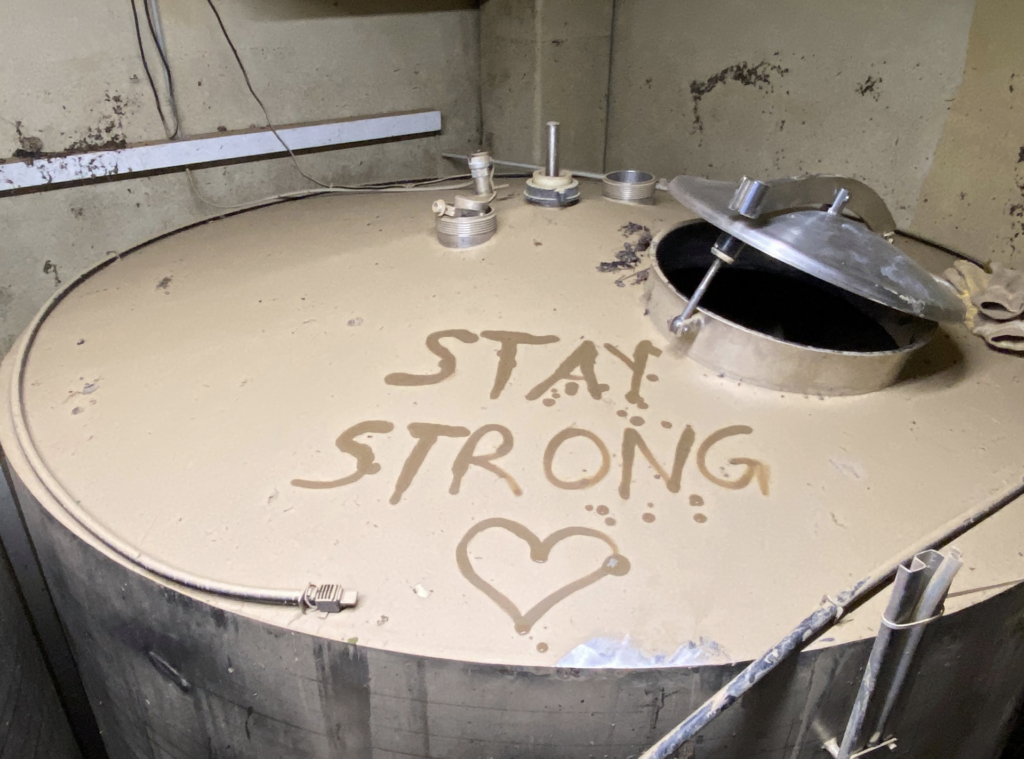
Weingut Kurth (Ahrweiler) [wine purchase]
- Website: https://www.weingut-kurth.de
- Instagram: @weingutkurth
- Facebook: @weingutkurth
Stefan Kurth started his winery as a part-time occupation in 2007 and has been full-time since 2011. Weingut Kurth counts as one of the many “Klein aber fein” wineries on the Ahr. The winery is located very close to the Ahr.
Stefan is selling several special “Schlammboxen” surprise packages. Purchasing these now provides much-needed financial support.
- Premium “Schlamm” 6 pack (€207.56 plus shipping)
- “Schlamm” 6 pack (€106.72 plus shipping)
- Sparkling “Schlamm” 6 pack (€148.74 plus shipping)
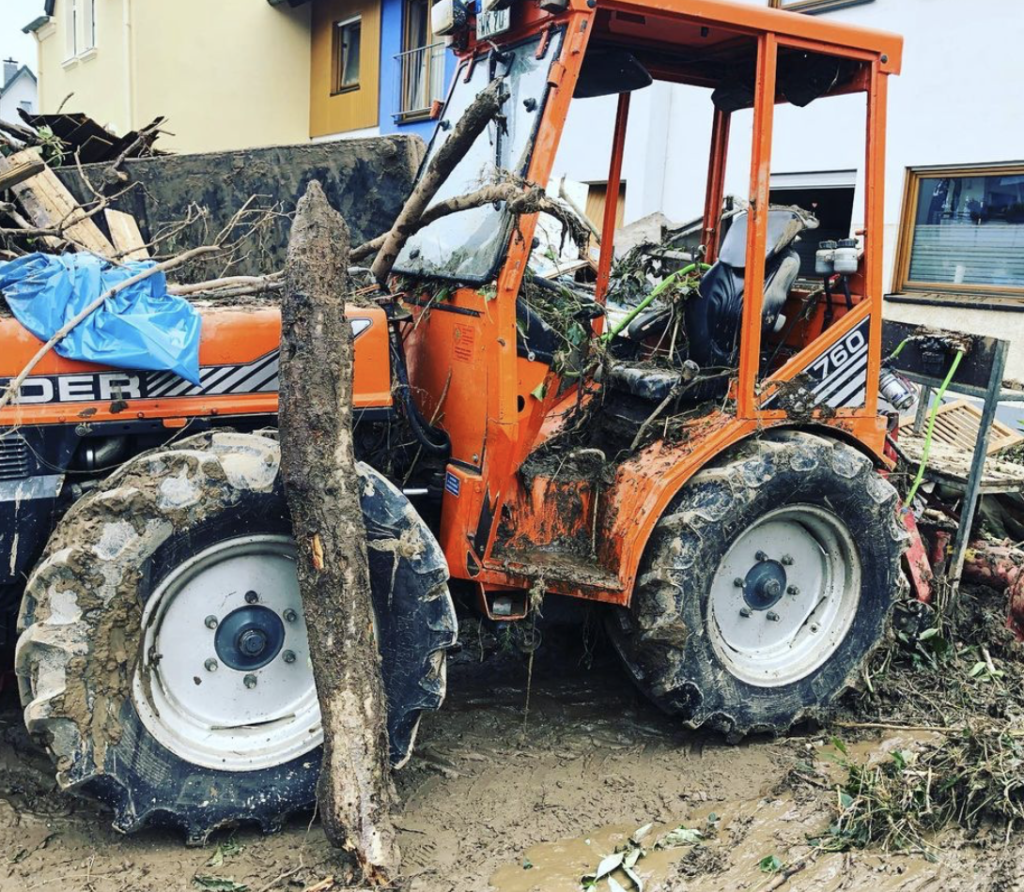
Weingut Max Schell (Rech) [donation]
- Website: https://www.max-schell.de/en/
- Instagram: @weingut_max_schell
- Facebook: @WeingutMaxSchell
Weingut Max Schell is a bit of a secret tip. Located in Rech, the Schulze-Icking family produces top Spätburgunder. Their winery has been substantially destroyed.
The winery has now set up a PayPal donation account. Donations can also be made via PayPal to info@max-schell.de
Alternatively, donations can be made to:
Account: Wolfgang Schulze-Icking
Bank: Kreissparkasse Ahrweiler
IBAN: DE63 5775 1310 0000 2703
BIC: MALADE51AHR

Winzergenossenscahft Mayschos-Altenahr (Mayschoss) [donation and wine purchase]
- Website: https://www.wg-mayschoss.de
- Instagram: @wgmaychoss
- Facebook: @wgmayschoss
The Winzergenossenschaft Mayschoss-Altenahr is the oldest wine cooperative in the world, having been founded in 1868. Their building and cellars are partially under threat of collapse.
You can support the Winzergenossenschaft in two ways. They are offering a limited supply of “WG-Hochwasser Surprise Pakete” for €100. To reserve, send an email to info@wg-mayschoss.de with your delivery address. Payment can be made to:
Account: Winzergenossenschaft Mayschoss-Altenahr
Bank: Volksbank RheinAhrEifel
IBAN: DE19 5776 1591 0550 0821 01
BIC: GENODED1BNA
Subject: Hochwasserpaket
Direct donations can be made to:
Account: Winzergenossenschaft Mayschoß-Altenahr
Bank: VR Würselen
IBAN: DE 2939 1629 8010 1719 7025
BIC: GENODED1WUR
Subject: Nothilfe Mayschoss
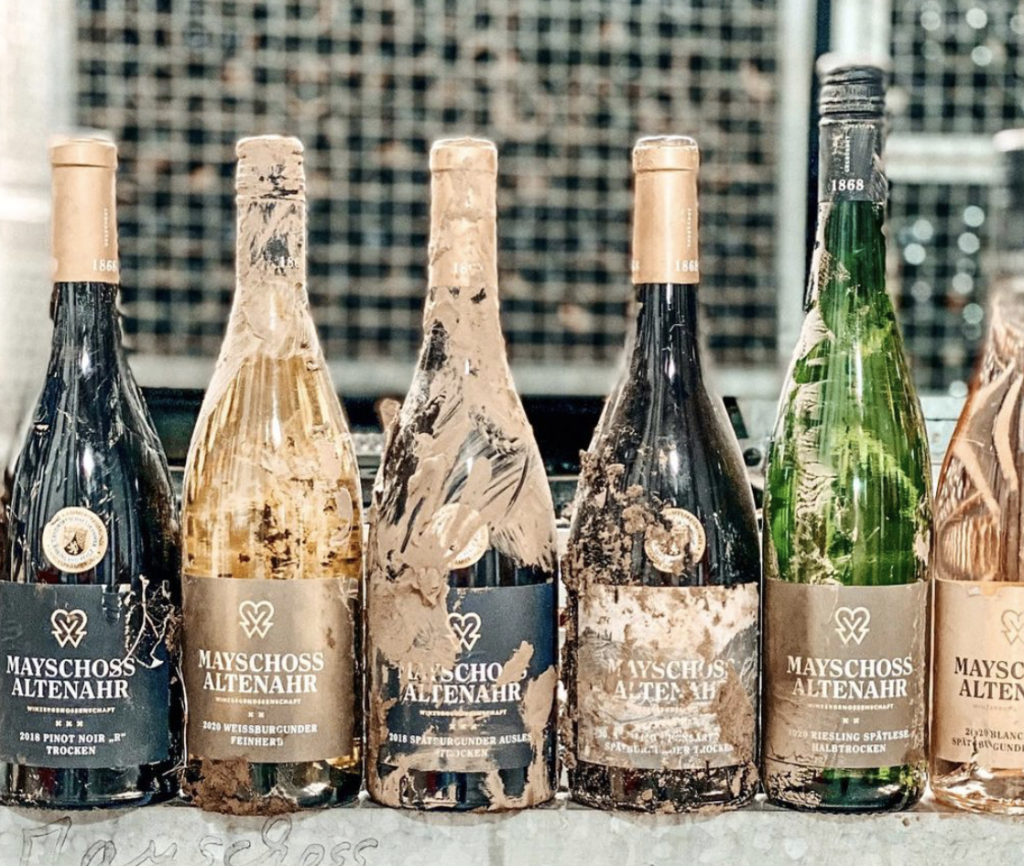
Weingut Nelles (Heimersheim) [donation and wine purchase]
- Website: https://weingut-nelles.de
- Instagram: @weingutnelles
- Facebook: @Weingut.Nelles
Evidence of winemaking in the Nelles family goes back to 1479 (hence the prominence of this number on the winery’s labels). Philip and his father Thomas are at the helm of this VDP-member winery, making fantastic wine in Heimersheim, one of the towns closest to the Rhein. I’ve known both Thomas and Philip for years and they are fantastic winemakers and wonderful people. They estimate that the flood destroyed €300,000 of wine alone, not to mention their cellar and equipment.
Philip and Thomas are offering a “Hockwasserkiste” of 6 wines for €250. Of this, €100 will go to the VDP “Adler Hilft” fund noted above.

In addition, direct contributions can be made to the winery through StartNext. For every contribution above €50, the Nelleses will send a bottle of their “Hochwasser” wine (within Europe).
Weingut Peter Lingen (Bad Neuenahr-Ahrweiler) [donation and wine purchase]
- Website: https://www.weingut-lingen.de
- Instagram: @weingutpeterlingen
- Facebook: @weingutpeterlingen
Weingut Peter Lingen is a wine-making family in its 11th generation. Their winery is in Bad Neuenahr-Ahrweiler.
All of the winery is destroyed.
Famille Lingen have started a GoFundMe account with a goal of raising €50,000.
In addition, Weingut Peter Lingen is offering 6-packs of unlabeled wine rescued from their cellar for €100, which includes a €10 donation to “Ahr – A Wineregion Needs Help e.V.” or “Der Adler Hilft” funds listed above. Simply send an email to info@weingut-lingen.de or respond to the relevant post on Facebook or Instagram.

Weingut Sermann (Altenahr) [donation]
- Website: https://www.sermann.de
- Instagram: @weingut.sermann
- Facebook: @Weingut-Sermann-372199316278274
The Sermann family has made wine on the Ahr since 1775. Lukas Sermann is the 7th generation of winemakers in the family and is one of the “young stars” on the Ahr.
Their winery in Altenahr was devastated.
Direct donations for rebuilding can be made to
Account: Weingut Sermann Inh. Lukas Sermann
Bank: Kreissparkasse Ahrweiler
IBAN: DE76 5775 1310 0000 2051 95
BIC: MALADE51AHR
Donations can also be made by PayPal to info@sermann.de
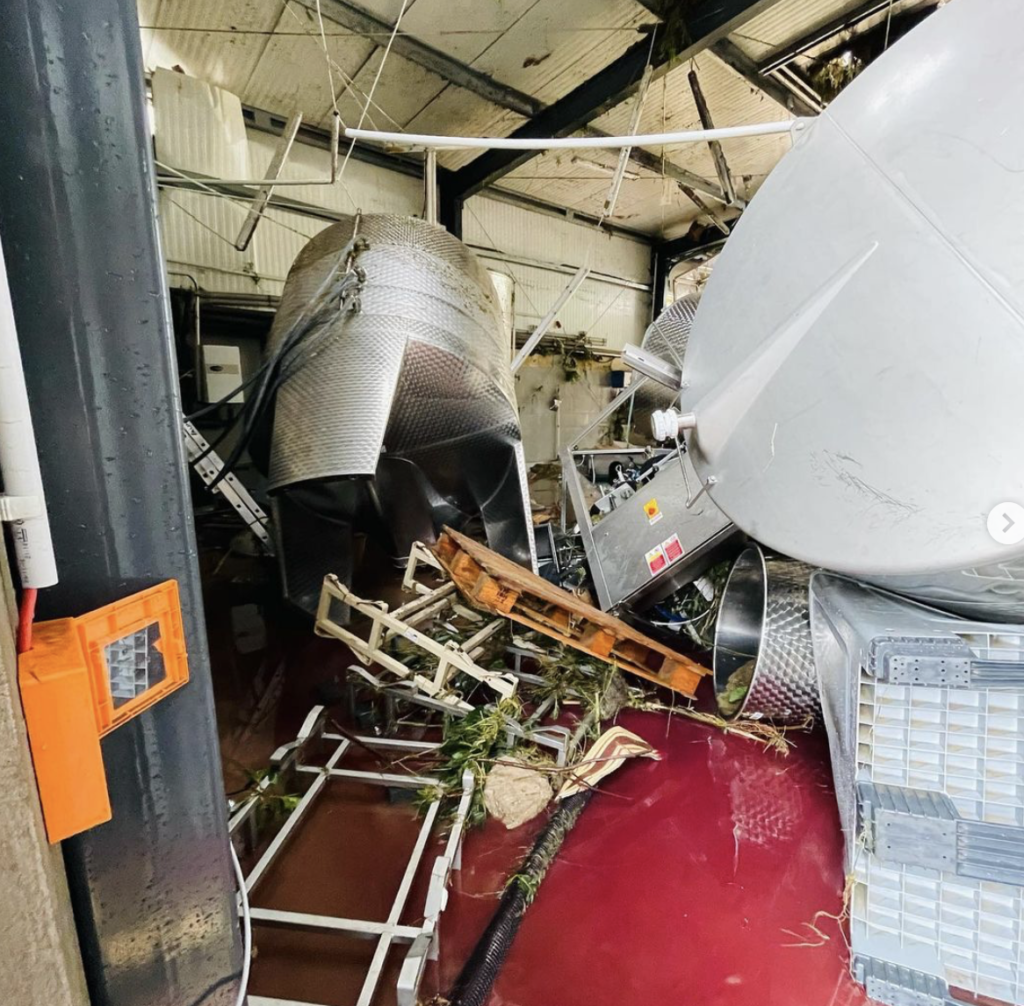
Weingut St Nepomuk (Rech) [donation]
- Website: https://stnepomuk-rech.de
- Instagram: @vg_st_nepomuk
Weingut St Nepomuk is a small family winery and restaurant in Rech.
Tim Harder has founded a GoFundMe with a goal of raising €25,000.
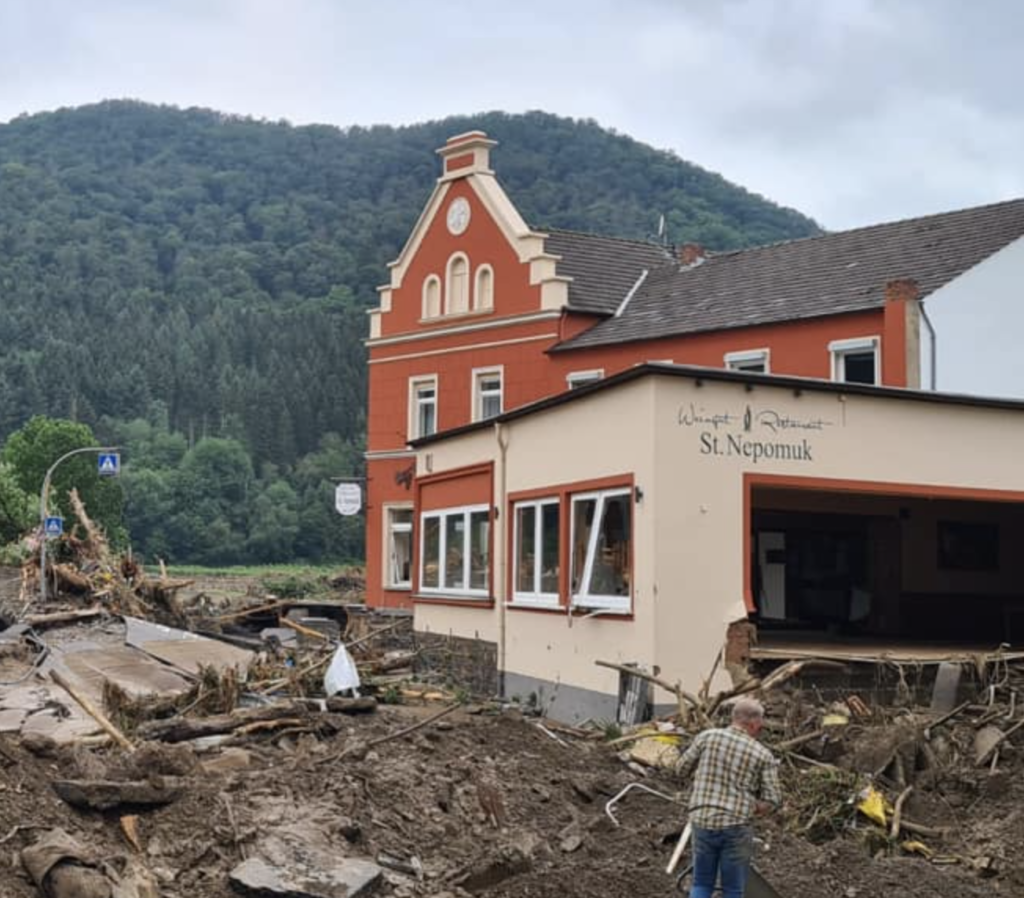

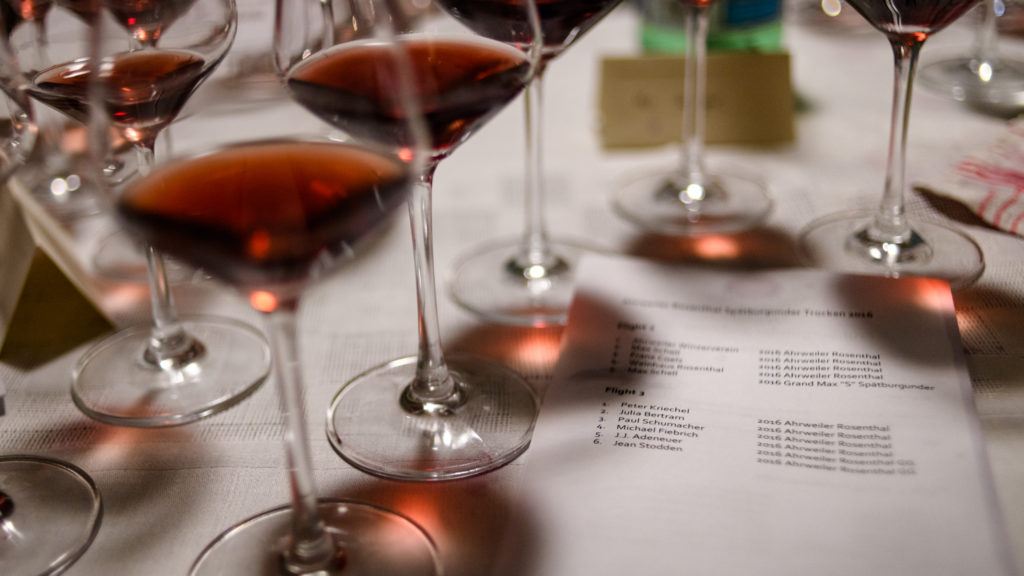
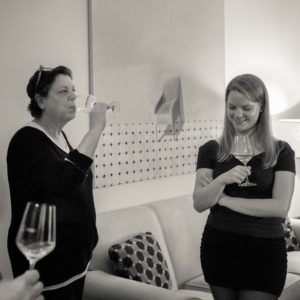
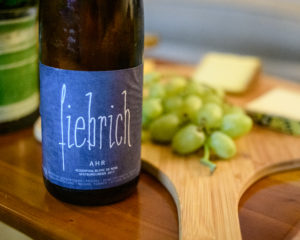 Although focused on Früh- and Spätburgunder, we served two Blanc de Noirs from the Rosenthal while folks were gathering. The first, a 2017 from
Although focused on Früh- and Spätburgunder, we served two Blanc de Noirs from the Rosenthal while folks were gathering. The first, a 2017 from 